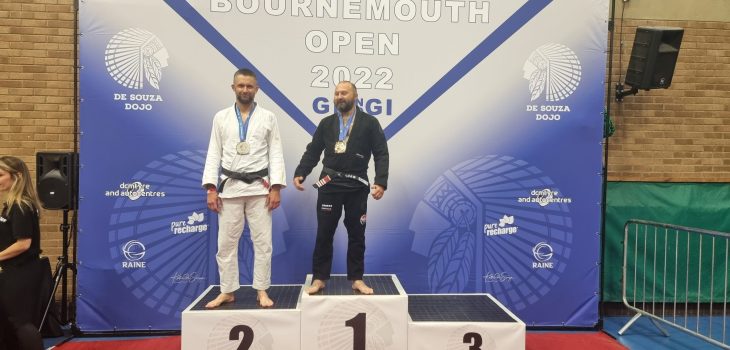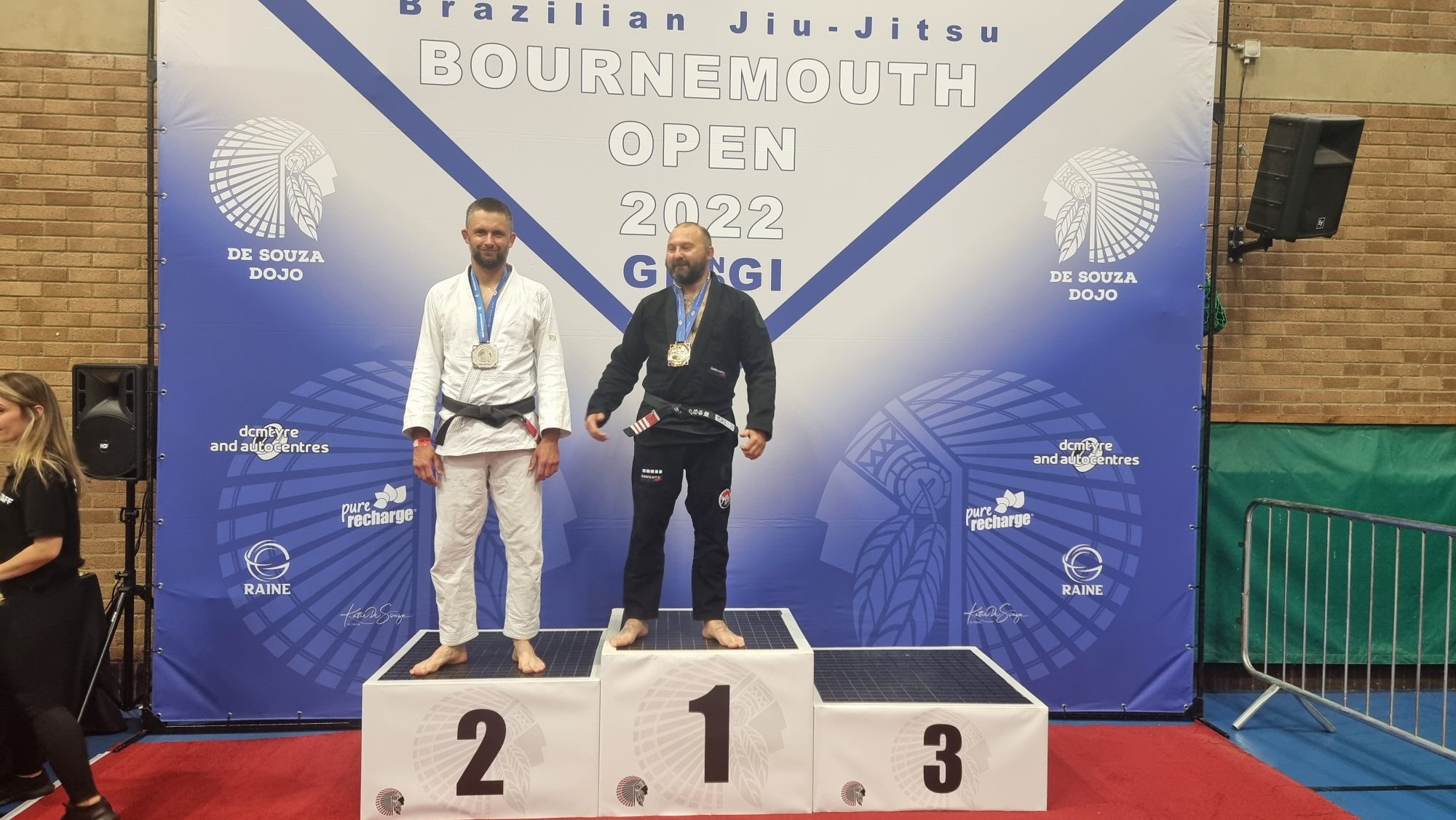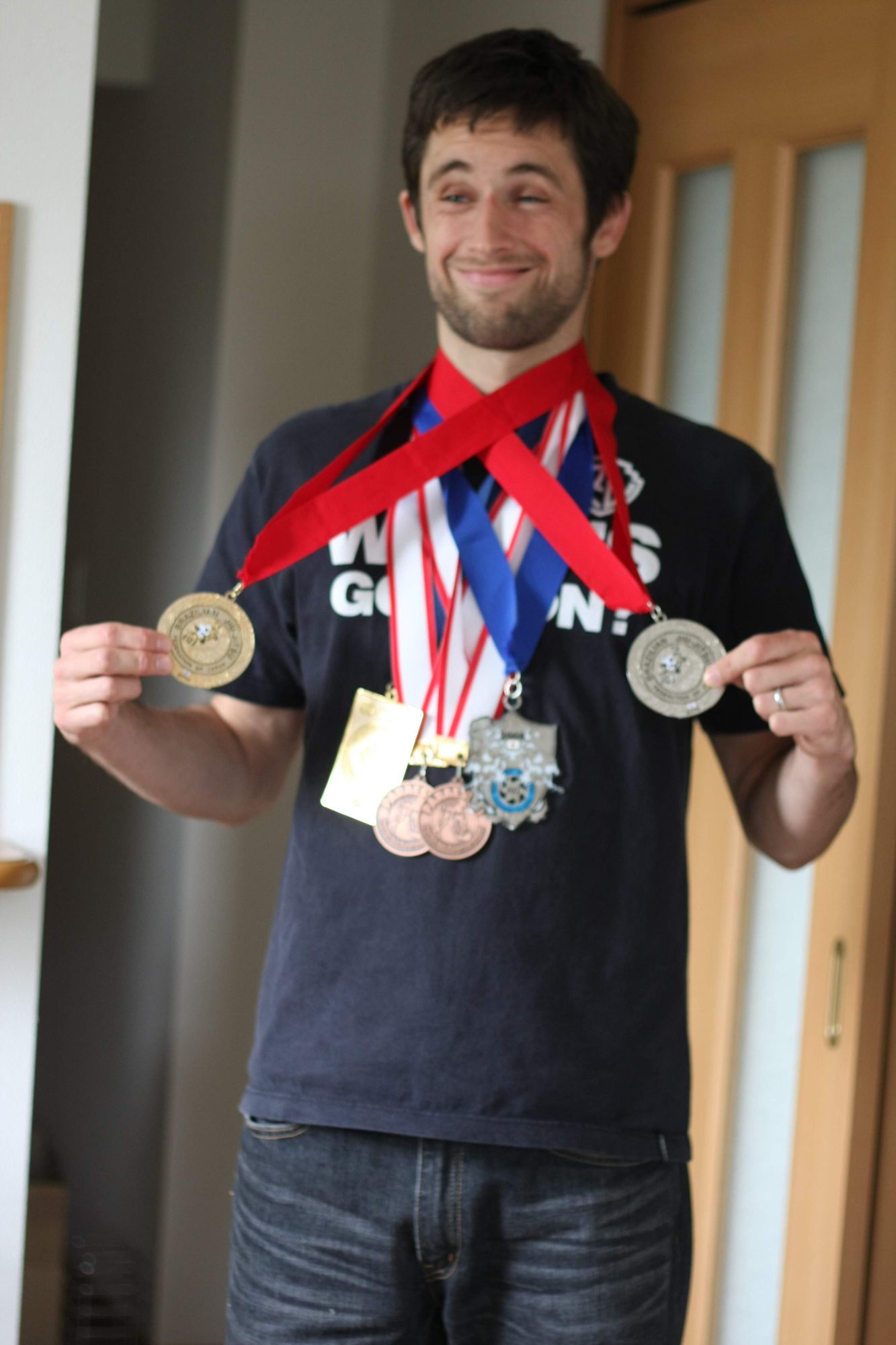 Scramblog
Scramblog How to Deal with Competition Nerves and Anxiety –…

I hate competing. Or to be more precise, I hate the build-up to competing. The actual matches themselves are usually quite enjoyable, in fact. Luckily, throughout the main portion of my “middle career” in jiujitsu (blue and purple belt) I was training under Kenshi Tomari in Japan, and he used to force me to compete. In hindsight, I really appreciated that. He encouraged everyone to compete as much as possible. He even had an unofficial rule – he would only promote you if you won All-Japan at your belt (which is pretty crazy, in hindsight). I never managed to win that, but before I left Japan for England, I won the South Japan tournament at blue belt, and got my purple belt. So that’s cool.
Anyway, without further ado, here are some tips for how to deal with competition nerves (and nerves / anxiety in general). Things to note: I am not a great competitor, at all, but I think that fits the profile of many people who train. Most of us are regular people who do jiujitsu for fun, and competition is a necessary evil. This article is not about competing at the highest level, but about average joe dealing with anxiety and nerves around competition time.
You can also see how these concepts relate to normal life – just add it to the list of endless lessons that jiujitsu gives you.
DO THE WORK
This is honestly probably the biggest. The main cause of anxiety is usually a fear of failure, and what might cause you to fail? If you have not done the work required. The actual work itself is different for everyone – what it means is, do the maximum that you can possibly do within a reasonable framework. Doing the work for one person might mean training five days per week, but for another person, it might mean two or three. The point is, you know what work is required and what you can reasonably do. Let’s say you can realistically train three times a week, as that’s all that you can do with your family and work commitments. If you manage to hit all three consistently, then you are doing the work. If you only do one this week and two the next, then you know yourself that you have not done the work, and this will lead to anxiety. This applies to life, too – you can enter a situation feeling confident or feeling nervous, and often either feeling will be tied to whether you feel you did enough work (preparation) beforehand. Jon Danaher said (something along the lines of) you can’t fake confidence. You just have to do the work, and you will gain confidence from it.
USE IT AS A REMINDER THAT YOU ARE ALIVE
Nerves are good. A pounding heart is good. It means you are doing something stimulating. Life can be very boring, otherwise. If your heart rate never goes up or down too much, then what are you really doing with your life? Use competition as a way of reminding yourself that you’re alive, a way of challenging yourself. A way of safely heading towards danger. Sports have always been a proxy for war. Person vs person, town vs town, nation vs nation – sports are a safe battleground for you to prove yourself. The risks are real, but somewhat controllable – which makes competitive sports one of the safest ways to really get the adrenaline flowing. Enjoy the nerves and the sleepless nights – one day you will be too old to put yourself through it, and you will miss those days and those opportunities.
HAVE A TRIGGER
Dan Strauss is a charismatic and friendly guy – even on competition day. All smiles, very relaxed. I asked him about this and he said that he was taught a technique by a sports psychologist to train a ‘trigger’ into yourself. A lot of mental and physical energy is wasted on nerves. I myself have had the experience many times – sometimes I feel sleepy by the time is is finally time to step on the mats, because I have been adrenaline dumping (pun intended) all day long. Try to train a technique into yourself that does not allow you to become overly stimulated before it is time to do so. For example, after I heard this from Dan, I tried the following. I made up a hand gesture for myself (link my thumb and third finger on both hands, and link them together.) This was my sign that is was “on”. I would do this before sparring each round in the gym. Once I had done this, no matter how chatty or friendly I was before, for the next five or six minutes, it was 100% effort, all business, no smiles. Once the round was over, I could return to my normal self. I built this into training and it started to work – I would remain calm (low heart rate) at all times apart from when it was go time. I used this at my next competition (first time at black belt) and it worked well – I was able to remain calm while waiting for the match, and just before stepping onto the competition mats, I made the gesture and felt myself lock in. I lost the match but it was by one advantage and I felt like it could have gone my way, if you’re interested. This is something to apply to the rest of your life, too – if it’s time to stress, then stress, but if it’s not time to stress, then don’t stress. Be selective with your output.
MEDITATE
Meditation is great. It’s something that I recommend to anyone and everyone. I use an app called Headspace, and it is a very good way of gently easing into a meditation routine. Most of the courses are a simple 10-minutes a day. Easy to do, really. There is an old saying – if you can’t find 10 minutes a day to meditate, then you need to meditate for 20. Or something like that. Basically, if you are too busy or too stressed to meditate, then the need for meditation is higher than you think. Meditation helps by placing a small gap between your thoughts, and yourself. You begin to realise or notice that you are not, in fact, your thoughts. You are not your stress, your anxiety, or even your happiness. You are a meat puppet automaton that experiences passing thoughts. They are like clouds passing a blue sky – really, you are the eternal blue sky, and not the passing cloud. Meditation allows you to place less emotional stress on things from the past or the future, which can in turn allow you to deal with nervousness and anxiety better. Think of what you are doing right now, right this very second. Most likely, you are not under any physical or emotional torture. You are not being restrained, you are not being yelled at. (If you are, sorry to hear it.) Then you realise that any stress you might be feeling is probably tied to something that happened a long time ago, or something that might happen in the future. Meditation can help you to realise that, and encourage you to relax into the present moment.
NO ONE CARES
This is important. Quite often we tie our competition results up with our sense of worth to ourselves and our peers, but the key thing to remember is that nobody cares. Nobody you work with cares if you won or lost at the weekend. Your partner or spouse doesn’t care if you lose. Literally, nobody cares if a hobbyist loses a jiujitsu tournament. Any pressure you may feel is mostly applied by you, yourself. It can help to remember that whether you win or lose, you will still be the same person on Monday morning, you’ll just have another cool experience under your belt. Your coach might care, if you made some stupid mistake, and your friends might take the piss out of you, but that’s fine, they are supposed to do that. To illustrate how little nobody cares, I put a picture of me coming second in a two-man race.
There are a few more points but they all come down to essentially the same thing – enjoy and embrace the experience, including the negative aspects of it (the nerves and anxiety.) Do enough work that you can feel confident going into it, and remind yourself that everyone who competes is probably just as nervous as you. Life will come and challenge you, whether you invite it in, or it comes in uninvited. Better to take control of the situation and invite the challenge.
